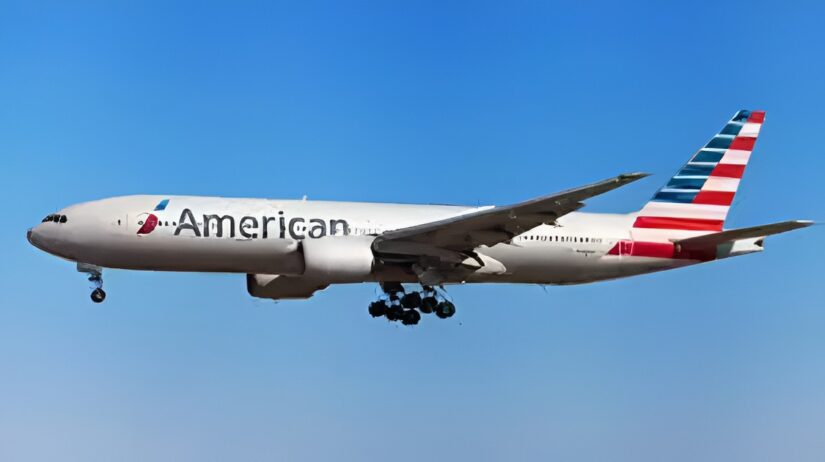
A federal jury in California has ordered American Airlines to pay more than $11 million to a passenger who suffered a stroke on an American Flight 68 from Miami to Madrid. The case centered on the airline’s failure to follow established medical protocols, raising urgent questions about airline liability and passenger safety on international flights.
The Medical Emergency on Flight 68
In November 2021, Jesus Plasencia and his wife, Ana Maria Marcela Tavantzis, boarded a transatlantic flight from Miami to Madrid. Before takeoff, Plasencia briefly lost his ability to speak, a potential sign of a mini stroke or transient ischemic attack. His wife immediately warned the flight crew about these symptoms.
Instead of following safety protocols, such as contacting the airline’s medical hotline, seeking help from medical personnel onboard, or deciding to divert the flight, the crew members allegedly dismissed the warning and cleared the plane for departure.
Stroke at 30,000 Feet
While in the air, Plasencia suffered a full stroke. With no access to immediate hospital care, his condition worsened. After landing in Spain, he was rushed to a hospital in Spain where he remained in critical condition for over three weeks before returning home via air ambulance.
Today, Plasencia can no longer speak or write and depends on his wife for daily in-home care.
The Court’s Decision
The lawsuit was brought under the Montreal Convention, which governs civil aviation and airline liability on international flights. After a six-day trial in San Jose, jurors found American Airlines negligent for not following proper medical procedures and failing to escalate the situation to onboard medical escalation protocols.
- Jury awarded $13.28 million in damages.
- Reduced by 27.5% due to shared responsibility, leaving $9.6 million.
- With interest, the final judgment totaled $11.06 million.
The case demonstrates how airline safety protocols are not optional, but mandatory to protect passenger safety and the safety and well-being of everyone onboard.
Broader Airline Industry Context
This case resonates across the airline industry, from Delta Air Lines to Air France-KLM, Air Canada, and even Uzbekistan Airways. Airlines face pressure to strengthen flight protocols, medical care standards, and emergency staffing for in-flight incidents.
Failures in in-flight medical support may expose carriers to lawsuits and large passenger compensation payouts. Aviation groups such as the Safety Matters Foundation, Air & Space Forces Association, and regulators including IATA/ICAO Code guidelines emphasize the importance of medical staff, medical procedures, and onboard professionals being ready to respond.
Aircraft and Flight Operations
The case involved a Miami to Madrid flight operated on a widebody aircraft such as the Boeing 777 or B-787 Dreamliner, models often used for transatlantic flights.These long-haul planes are designed for efficiency, but once airborne, medical emergencies require strict adherence to flight crew response protocols. Failing to follow them can have devastating consequences.
Passenger Experience and Safety Concerns
Passengers increasingly expect airlines to ensure wheelchair accessible services, quick access to medical personnel, and proactive safety protocols. This includes consulting with medical staff via a medical hotline, deciding whether to divert the flight, and ensuring the cabin is prepared for emergencies.
Cases like this reinforce the need for airlines to uphold not just loyalty programs or customer perks, but also their most basic duty: protecting the safety and well-being of passengers.
Final Thoughts
The federal jury verdict against American Airlines illustrates the consequences of ignoring medical red flags. This tragedy shows why airline safety protocols are vital not just as rules, but as life-saving measures. From medical care to onboard medical escalation, every detail matters when a passenger’s life hangs in the balance.
For travelers, this case is a reminder to know the Stroke Signs and advocate for immediate assistance when emergencies occur. For airlines, it is a call to prioritize passenger safety above all else, ensuring that every journey whether aboard American, Air Canada, or any other carrier meets the highest standard of care.
About Ted Law
At Ted Law Firm, we remain a trusted voice for families in the Carolinas dealing with roadway tragedies. We serve families across Aiken, Anderson, Charleston, Columbia, Greenville, Myrtle Beach, North Augusta, Orangeburg, and near major airport South Carolina and Georgia locations. With compassion and commitment, the firm supports victims of reckless driving, high-speed chases, and catastrophic crashes.Contact us today for a free consultation
